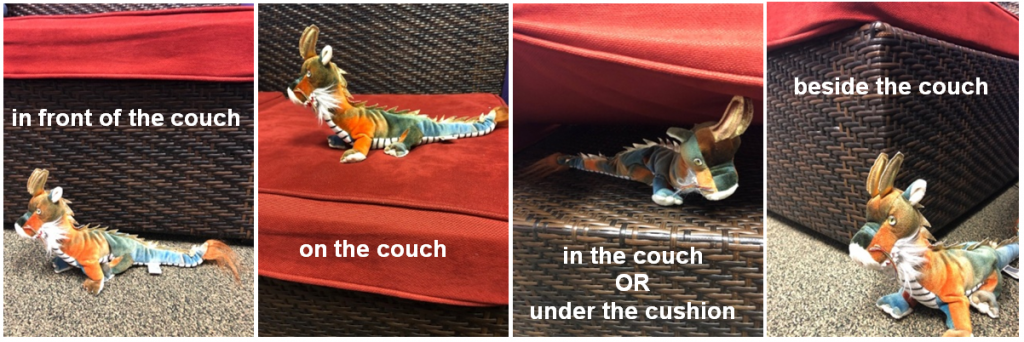 Having trouble coming up with something to do to celebrate English language month? Here are 5 ideas for ways to celebrate the English language and have fun at the same time!
Having trouble coming up with something to do to celebrate English language month? Here are 5 ideas for ways to celebrate the English language and have fun at the same time!
Celebrate English Language Month with 5 Fun Activities
Word Pieces
As an adult, one aspect of English that I’ve come to appreciate the most is how switching prefixes and suffixes can make different words or parts of speech. Making new words (even nonsense ones) can be fun, and although small children aren’t ready for prefixes and suffixes, they can have some fun prepping for the idea by taking words apart and putting new words together.
For this idea, cut out the word beginnings and word endings from the English Language Game Sheet. Stack the gray boxes into a pile, face down, and spread the white boxes out in front of you. Then, start playing. Here are the rules:
- At the start of a turn, the player will pick a gray box from the pile.
- The goal is to put that box in front of one of the white boxes to make a word.
- If the player makes a real word, he or she gets 1 point, and the turn is over.
- If the word created isn’t a real word, the player has to put the gray box back in the pile and doesn’t get a point for that word.
- Then, the next player takes a turn with the same rules.
- If a player replaces an existing gray box, that box goes back into the draw pile only if the new word created is also correct.
- For example, if someone draws an “n” and “grow” has already been played, the player can change “grow” to “now” and return the “gr” to the draw pile.
- If a player attempts to do this but does not create a real word, put the word back the way it was and discard the new beginning sound.
Like most games, play until you have a winner or want to move on.
Story Cubes
Story cubes and other board games can be played at any time, but making up fun stories seems like a perfect way to celebrate English language month!
Simply follow the rules on the box to create your own wacky stories. With a little imagination, there is no limit to the fun you can have.
Act Out a Story
Playing make believe is great for brain development and critical thinking. And children like it because it’s fun – especially when parents play, too!
To throw a little English in the fun, read the children a story and have them act it out. Or (even better) have a child read for the other children (and adults) to act out. This is a fantastic way to make reading fun again for children who are starting to feel like reading is work.
Preposition Play
English has over a hundred prepositions, and we mostly learn them by hearing them used and reading them. That’s because few people offer ways to practice prepositions besides rote memorization. That’s not entertaining at all!
With a little creativity, however, a preposition review or quiz can be much more entertaining. Have your children each pick out a favorite toy (a doll, stuffed animal, or action figure is perfect). Then, as you name a preposition, each child has to use the toy to demonstrate that preposition with the furniture around them. If you want to direct the play, you can even say which object to use, as well.
 This not only makes preposition practice more fun but also emphasizes the purpose of prepositions, which can be really helpful when students get to prepositional phrases later.
This not only makes preposition practice more fun but also emphasizes the purpose of prepositions, which can be really helpful when students get to prepositional phrases later.
Word or Story Doodle
Another great way for students to explore language is to draw it. If your child is into art, have him or her pick a word to draw from the latest set of vocab words. Or take the stories the child made in the story cubes game and illustrate them.
Images bring the words and stories to life, and drawing helps children develop decision-making skills and creativity. Win-win!
Which activity did you try? We’d love to hear how it worked for you!
Author: Elizabeth F., Writer and Teacher at A Grade Ahead
Get Notified When New Articles Post
Sign up to receive one email per week from A Grade Ahead full of parenting tips and helpful articles. Enter your information on the right hand side of our Blog page and we will add you to our list of subscribers. We also welcome your feedback and comments on our posts!

Thank you so much for providing these activities. This will help my students a lot in improving their English vocabulary skill.
Emma, we are so happy that these activities may help your kids with English vocabulary! Thank you for reading and offering your valuable feedback!